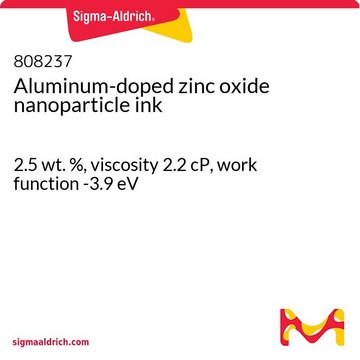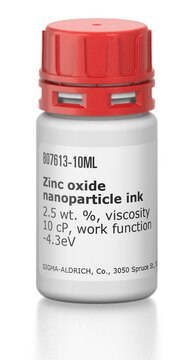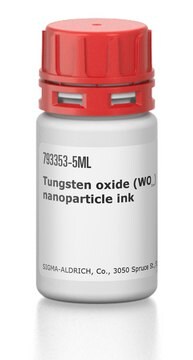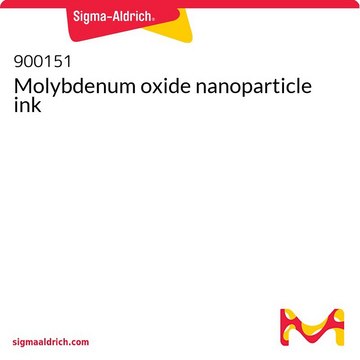793388
Aluminum-doped zinc oxide nanoparticle ink
Synonym(s):
AZO dispersion, AZO ink, Al-doped ZnO ink, Al:ZnO ink, Aluminum doped zinc oxide nanoparticle dispersion, Aluminum-doped zinc oxide suspension, Avantama N-10X, Nanograde N-10X
About This Item
Recommended Products
form
dispersion (nanoparticle)
concentration
2.5 wt. % (crystalline Al-doped ZnO (98 wt% ZnO; 2 wt% Al2O3) in 2-propanol)
color
translucent yellowish
particle size
<50 nm (BET)
density
0.8016 g/mL at 25 °C
Application
This Al-doped ZnO nanoparticle ink is universally applicable in normal and inverted architecture with performance comparable to evaporated calcium.
Annealing temperature <100°C
Other Notes
Legal Information
Signal Word
Danger
Hazard Statements
Precautionary Statements
Hazard Classifications
Aquatic Chronic 3 - Eye Irrit. 2 - Flam. Liq. 2 - STOT SE 3
Target Organs
Central nervous system
Storage Class Code
3 - Flammable liquids
WGK
WGK 1
Flash Point(F)
53.6 °F - closed cup
Flash Point(C)
12 °C - closed cup
Choose from one of the most recent versions:
Certificates of Analysis (COA)
Don't see the Right Version?
If you require a particular version, you can look up a specific certificate by the Lot or Batch number.
Already Own This Product?
Find documentation for the products that you have recently purchased in the Document Library.
Customers Also Viewed
Our team of scientists has experience in all areas of research including Life Science, Material Science, Chemical Synthesis, Chromatography, Analytical and many others.
Contact Technical Service










